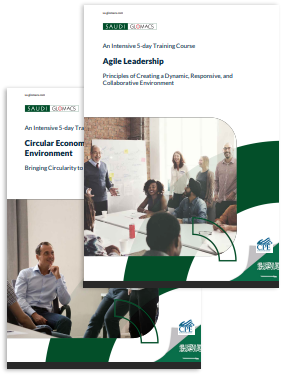An Interactive 5-Day Training Course
Accounting for Investment and Managerial Decision Making
Essential of accounting, Finance, and Investment Decision
Course Overview
The role of finance and accounting in modern organizations are not just on cost reduction strategies, but are also involved in improving planning, driving efficiencies, and providing company-wide insights. A better understanding of finance and accounting by non-financial managers and decision makers can be used to exploit these insights and align business strategies effectively. The Accounting for Investment and Managerial Decision-Making training course will equip the delegates with the financial and managerial accounting skills critical for business and investment decisions and improve organization’s performance. The delegates will have the opportunity to explore the building blocks of financial reporting, gain an ability to interpret income statements and balance sheets, and discover how to communicate the results to business stakeholders.
This Saudi GLOMACS training course will use practical real-life cases to illustrate the importance of accounting and finance for organizations. Delegates will also explore how to evaluate costs, efficiencies, and profits to create a sustainable improvement, and learn how to set budgets and targets that fit the organization’s risk profile.
This Accounting for Investment and Managerial Decision Making training course will highlight:
- The accounting function, financial and management accounting systems
- The income statement, balance sheet, and cash flow statement
- How to determine accurately the cost of product or service.
- Effective finance and accounting techniques for decision making
- Using budgets to set targets and control the business
Training Objectives
By the end of this Accounting for Investment and Managerial Decision Making training course, participants will be able to:
- Analyze and interpret an organizations’ annual report
- Explain the difference between profit and cash flow
- Interpret cost behaviour and its impact on product costing
- Use accounting techniques to improve profitability and efficiency
- Use ratio analysis to evaluate financial position and financial performance
- Understanding functional and departmental budgets
Who should Attend?
This Saudi GLOMACS Accounting for Investment and Managerial Decision Making training course is suitable for a wide range of professionals who wish to achieve career progress by expanding their financial knowledge. The training course will be most suitable for operational and middle Managers who wish to better understand and make use of financial information in their management roles such as:
- Non-financial Managers who want to leverage accounting to enhance their decision-making and business analysis skills.
- New or aspiring managers seeking to expand their financial knowledge
- Members of the operational management team
- Managers who have responsibility for support functions
- Consultants who provide advice on systems and operations
- Senior staff members of any department
About Saudi Glomacs
At Saudi GLOMACS, we specialize in delivering world-class training courses in Saudi Arabia and across various international locations. Our training courses are tailored to meet the unique demands of Saudi Vision 2030 and the Human Capability Development Program, focusing on empowering Saudi citizens and enhancing workforce skills. We offer diverse courses spanning leadership, management, engineering, and technical disciplines to cultivate expertise and drive professional growth. Our flexible learning options—whether in-person, online, or in-house—ensure accessibility and convenience for individuals and organizations alike.
With over 30+ years of experience through the GLOMACS global network, we are committed to delivering innovative, results-driven training solutions. Our expert instructors combine industry knowledge with dynamic teaching methods, fostering practical skill development and long-term career success. By choosing Saudi GLOMACS, you're investing in personal excellence and contributing to the Kingdom’s sustainable economic growth and vision-driven transformation.
Training Outline
DAY 1: Introduction to Financial Analysis
- The importance of financial accounting data
- Users of financial information
- Sources of financial information
- The purpose of published annual reports and accounts
- The structure and contents of an annual report and accounts
- The three main financial statements
- Income statement
- Balance sheet
- Statement of cash flows
DAY 2: Ratio Analysis
- Ratios and other analyses of the annual report to assess financial performance
- Efficiency and working capital
- Liquidity and short-term solvency
- Investment and growth
- Financial structure and long-term solvency
DAY 3: Capital Investment Decisions
- Identify long-term debt and equity, and short-term financing
- Cost of capital: capital asset pricing model (CAPM) and cost of debt
- Weighted average cost of capital (WACC)
- Optimal capital structure models and WACC
- Future values, present values, and discounted cash flow (DCF)
- Using net present value (NPV), internal rate of return (IRR), modified internal rate of return (MIRR) and equivalent annual cost (EAC) to analyse and evaluate capital projects
- Business valuations
DAY 4: Cost Analysis
- Cost, behaviour and activities
- Fixed and variable costs, direct and indirect costs
- Product costs and period costs
- Cost allocation and absorption of overheads
- Absorption or full costing
- Cost-volume-profit (CVP) analysis
- Activity based costing (ABC)
DAY 5: Budgetary Control and Performance Improvement
- Budget preparation process
- Preparation of the master budget
- Responsibility accounting and variance analysis
- Standard costing; flexed budgets; budgetary control to measure organisational and management performance
- Advantages, disadvantages, and behavioural aspects of budgeting
- The conflict between performance improvement and the costing system
Certificates
- On successful completion of this training course, GLOMACS Certificate will be awarded to the delegates
- Continuing Professional Education credits (CPE) : In accordance with the standards of the National Registry of CPE Sponsor, one CPE credit is granted per 50 minutes of attendance
Accreditation

GLOMACS is registered with NASBA as a sponsor of Continuing Professional Education (CPE) on the National Registry of CPE Sponsors. NASBA have final authority on the acceptance of individual courses for CPE credit. Complaints regarding registered sponsors may be submitted to the National Registry of CPE Sponsors through its website: www.learningmarket.org.
All Training Seminars delivered by GLOMACS by default are eligible for CPE Credit.
Providers and Associations
What do you need to learn next?
Check our list of courses or let us customize a course for you.
View courses



